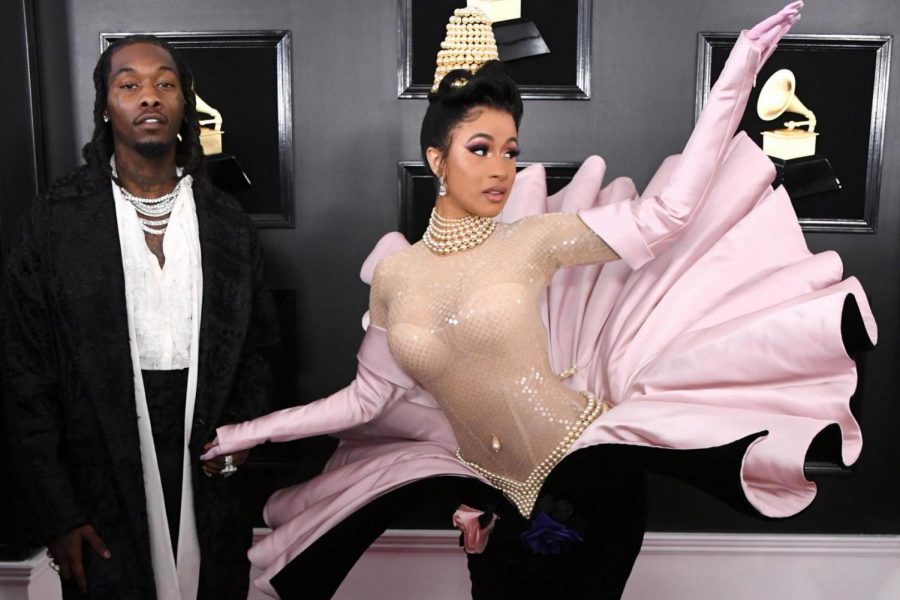Cardi B winning the Grammys is not the end of the world
February 27, 2019
Although I was among the 99% of Americans who didn’t watch the Grammys, I did see a flurry of responses on Twitter alerting me that something disastrous had happened. Many people weren’t thrilled about some of the results, particularly Cardi B’s “Best Rap Album” win. The Twitter storm’s latest conspiracy theory was that she got the win because of her gender, as if the Recording Academy picked her for diversity’s sake.
St. Pius X students were more or less indifferent to the awards show, even if Twitter had an actual conniption. When asked what he thought about the Grammys, junior Austin Lalomia said, “I watched the Grammys,” with no further comment.
The week after the award show, with the results already available to him should he bother to google it, Junior Grant Sasser gleefully said that he “hope[s] Cardi B performs.”
Grimacing, junior Jack Voss quickly corrected him before adding that the best part of the Grammys is “the pretzels at Grammy parties. Grammy parties always have the best pretzels.”
While many members of our community didn’t seem to care, the Golden Lines staff wants to offer a comforting message for those who do. Cardi B might not have won on artistic merit alone, but it’s going to be okay. The awards have never been about musical talent or production or songwriting of the music, it’s about cultural impact. The effect that a piece of art has on the national zeitgeist is more important than anything tangible about the music.
The idea that Cardi B didn’t deserve the win is equally flawed because there is no way to determine talent or artistic merit. Should there be a scale? Should it be more democratic? Should the Recording Academy just award the album with the highest Metacritic score?
Any way to evaluate the quality of art is ultimately arbitrary since it is always subjective. I could always say that I think that St. Pius’ own resident student rock band Two Piece Antidote ought to win and it would be no different.
If I were choosing nominations, I personally would not have nominated Drake’s “Scorpion.” I thought it was a bloated, narcissistic 25-song tracklist that would be great for a “Songs to Listen to while Studying” album playlist, but not much else. It sort of just exists in the background, lacking anything that would differentiate it from the rest of Drake’s already middling discography.
That’s just my opinion, though, and even though I dislike Drake, enough people at the Academy thought the album was important enough to be nominated for Album of the Year. Some of the tracks on “Scorpion” became massive hits, making it the most successful album of all time in digital streaming. The cultural impact of “Scorpion” was what earned it a nom.
Drake’s career is something that we have have to deal with now. It is part of the world in which we live, like famine, global warming and pestilence. I don’t know what transgressions humans committed to deserve Drake’s existence, but he’s here. We have to deal with the fact that some people like him (I don’t get it either, okay), and his music resonates with legions of people.
Cardi B may not have passed some people’s standards of a “great” album, but it represents a shift in rap culture. Having more representation in the industry and at the awards can only be a good thing, and if the Grammys are given based on politics or culture, they may as well be more diverse and inclusive.






